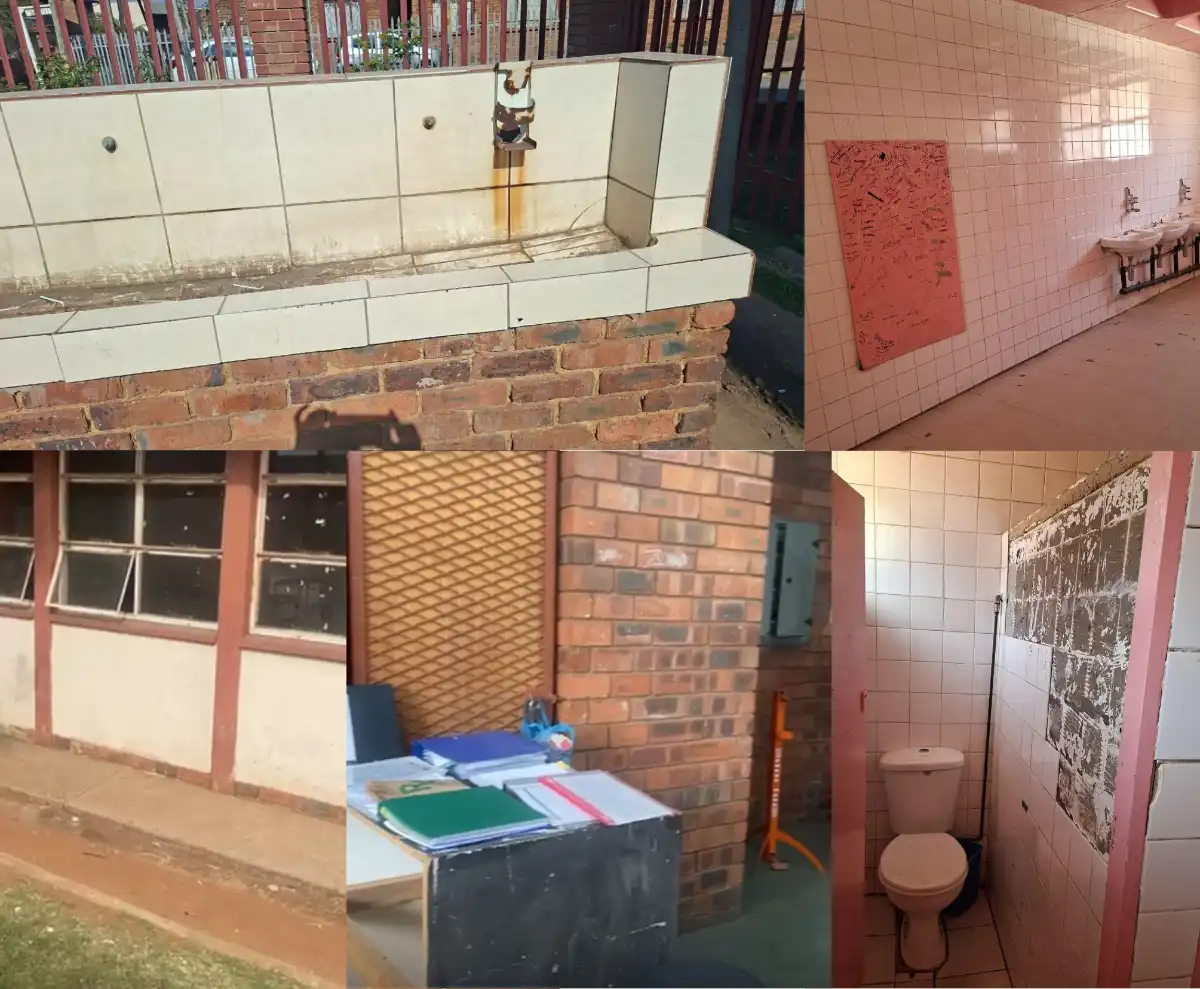Zach Mohamed, an educator and founder of the NPO Hashtag Humanity, is helping students at a troubled school in Benoni become self-sufficient and ready for a changing future.
“Mainstream school is failing our kids on a large, large scale… we need more problem solvers and more practical subjects,” she says.
What is the problem?
Liverpool Secondary School in Benoni, on Gauteng's East Rand, wrestles with deep-rooted educational and social crises. The school underperforms academically, with high drop out rates and only 66% of learners passing matric in 2024. Parents struggle to pay fees while teachers face overcrowded classes. High rates of bullying, gambling, and gang activity disrupt daily life at the school. These issues, along with widespread substance abuse, make learning near impossible.
According to Mohamed, many learners arrive at the high school without basics in maths and literacy. The COVID-19 lockdowns made this worse, leaving even more gaps that traditional rote-learning classrooms rarely address. Mohamed points to the high rates of university drop outs and youth unemployment as evidence for the failures of primary and high school education.
 The infrastructure at the school is in poor condition. Photo: Supplied via Zach Mohamed
The infrastructure at the school is in poor condition. Photo: Supplied via Zach Mohamed
How are they solving it?
In early 2025, Mohamed, who herself matriculated from Liverpool, returned to the East Rand. “I hold it dear to my heart because it's a community I grew up in,” she says.
Mohamed has started a twice-weekly maths intervention programme at the school. In these classes – offered for free thanks to the sponsorships of local business people or Mohamed inviting students at no charge – students take as much time as they need to really grasp concepts and critical thinking skills related to maths. “I do not chase any syllabus. If my kids don’t understand, I will sit even if it means five days,” she explains.
While offering the maths intervention, Mohamed noticed the immense challenges faced by students, from despondency arising out of a lack of opportunities, to high rates of substance abuse even on school grounds. Hashtag Humanity’s work aims to go well beyond a maths intervention. Through the “Bread ’n Butter Project,” Mohamed wants to equip young people with the skills and motivation to become resilient and future ready.
The Bread ’n Butter Project has three main parts:
Vocational skills development: Through online course platform, Alison, Mohamed plans to support students to pursue highly practical and marketable skills in areas of their own choosing like caregiving, sales and IT.
Digital opportunities: Hashtag Humanity aims to set up a community-focused digital platform, a mobile app, where students can showcase and sell their work to audiences far beyond Benoni. Through supporting these young people with digital marketing, photography, and online retail skills, Mohamed’s goal is to turn these students into what she calls “netreprenuers”, self-sufficient, digitally savvy young people.
All-round support: Through mentorship, the organisation aims to grow young people’s confidence, resilience, and purpose. Hashtag Humanity partners with Another Chance to Change (AC2C), a youth support programme in Benoni, to provide counselling to students. Mohamed emphasises that it’s critical to deal with the challenges students face holistically, which includes helping them deal with substance abuse.
At the core of Hashtag Humanity’s approach is developing the potential of every young person. When Mohamed sees all the graffiti around the school, she sees the ways that students can become graphic designers. “These kids are talented. Whether they're musicians, whether they're artists, whether they can work great with their hands,” she says.
How can you help?
Hashtag Humanity is still a small organisation that is starting out in the face of immense challenges. Mohamed has managed to get a few local businesspeople to and cover some costs, but the project needs much more support to grow. Here’s how you can get involved:
Volunteer your skills: If you have experience in teaching, mentoring, digital design, coding, or entrepreneurship, you can help mentor learners.
Donate equipment: The project needs laptops, tablets, printers, basic furniture, paper and art supplies.
Sponsor online courses: While Alison’s courses are free, students need to pay around R450 to receive a certificate, which will allow them to get future job opportunities.
Help build an online hub: Developers and digital marketers can contribute to setting up an accessible platform where students can sell creative work and skills online.
Spread the word: Share this story with others who might want to support change for youth in Benoni to become self-sufficient.
“The students are so charged up,” says Mohamed. “It’s given me that passion to do even more… I see the potential in them, we just need to bring it out and give them the resources.”
If you would like to help, you can contact Hashtag Humanity by emailing zacmo786@gmail.com
Acknowledgements
Photos: Supplied, Zach Mohamed
Author: Maru Attwood